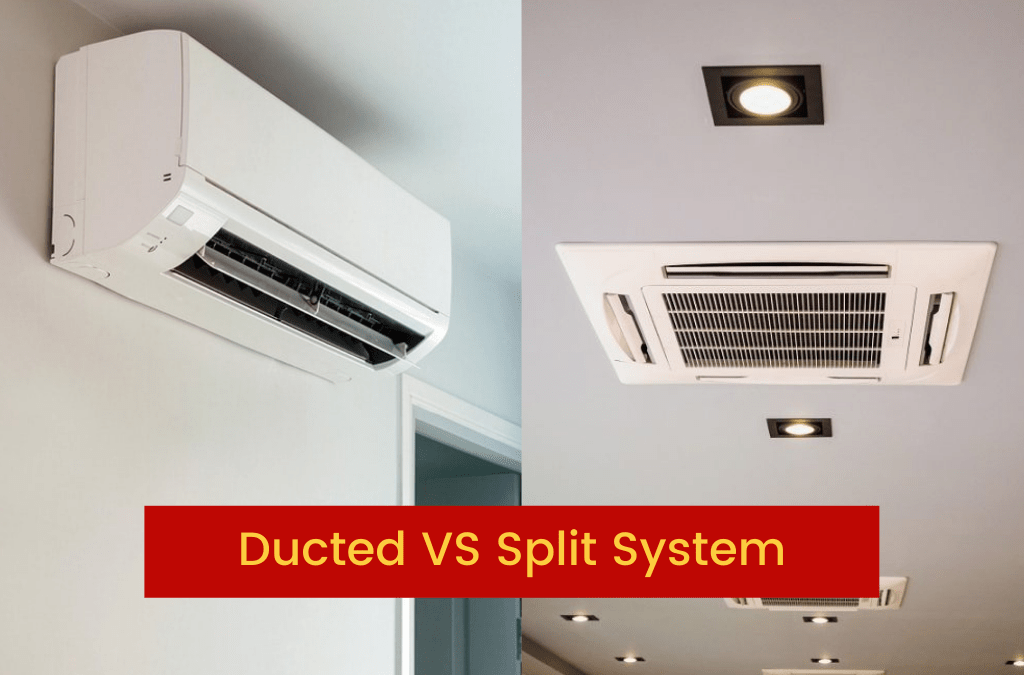Ducted air conditioning is a popular choice for homeowners and businesses seeking comprehensive climate control. However, with rising energy costs and growing environmental concerns, the efficiency of these systems is a significant consideration. This blog explores whether ducted air conditioning is energy-efficient and how to maximise its performance.
Understanding Ducted Air Conditioning
Ducted air conditioning systems distribute cooled or heated air throughout a building via a network of ducts. A central unit, typically located in the ceiling or outside, processes the air, which is then pushed through the ducts to various rooms, providing a uniform temperature. This system is particularly advantageous in larger buildings where consistent temperature control is desired.
Factors Affecting Energy Efficiency
System Size and Design
The size and design of a ducted air conditioning system are crucial for energy efficiency. A system that is too large will cycle on and off frequently, wasting energy, while an undersized system will struggle to maintain the desired temperature, leading to continuous operation and higher energy use. Proper system sizing, tailored to the building’s dimensions and layout, is essential for optimal efficiency.
Zoning Capabilities
Zoning allows different areas of a building to be cooled or heated independently. This feature can significantly enhance energy efficiency by allowing users to control the temperature in specific zones, reducing energy consumption in unused areas.
Insulation and Ductwork
Proper insulation of the ductwork is vital to prevent energy loss. Poorly insulated ducts can result in significant heat gain or loss, making the system work harder to maintain the desired temperature. Additionally, leaks in the ductwork can lead to substantial energy wastage, as conditioned air escapes before reaching the intended areas.
System Maintenance
Regular maintenance is key to ensuring that a ducted air conditioning system operates efficiently. This includes cleaning filters, checking refrigerant levels, and inspecting the ductwork for leaks or blockages. A well-maintained system not only performs better but also lasts longer, providing better value over time.
Energy Efficiency Ratings and Standards
When evaluating the energy efficiency of ducted air conditioning systems, ratings such as the Seasonal Energy Efficiency Ratio (SEER), Energy Efficiency Ratio (EER), and Coefficient of Performance (COP) are crucial. These ratings indicate how efficiently a system uses energy to cool or heat a space. Additionally, certifications like ENERGY STAR provide a benchmark for selecting systems that meet high efficiency standards.
Comparing Ducted Air Conditioning with Other Systems
Split-System Air Conditioning
Split systems, which consist of an indoor and an outdoor unit, are often compared to ducted systems. While ducted systems provide whole-building climate control, split systems can be more efficient in smaller spaces or where targeted cooling is required.
Portable and Window Units
Portable and window air conditioning units are generally less efficient than ducted systems, especially in larger spaces. However, they can be a cost-effective solution for single rooms or temporary setups.
Evaporative Cooling
Evaporative cooling is another alternative, particularly in dry climates. While energy-efficient, its effectiveness is limited in areas with high humidity.
Tips for Maximising Energy Efficiency
Proper Installation
Ensuring a ducted air conditioning system is properly installed is crucial for maximising efficiency. Poor installation can lead to issues such as improper airflow, leaks, and system strain. For expert installation and advice, consider ducted air conditioning by Airomania.
Smart Thermostats and Controls
Using smart thermostats and advanced control systems can help manage energy use more effectively. These devices allow for precise temperature control, scheduling, and even remote management via smartphone apps.
Regular Maintenance and Inspections
Routine maintenance and inspections can identify potential issues before they become major problems, ensuring the system operates at peak efficiency. This includes regular filter changes, duct inspections, and system performance checks.
Energy-Efficient Practices
Users can adopt several practices to enhance their system’s efficiency, such as setting the thermostat to optimal temperatures, using blinds or curtains to reduce heat gain, and ensuring windows and doors are properly sealed.
Cost Implications
Initial Installation Costs vs. Long-Term Savings
While ducted air conditioning systems can be a significant upfront investment, their long-term savings in energy costs often justify the expense. An efficiently running system reduces energy bills, offering savings over time.
Operating Costs
Operating costs are influenced by factors such as system efficiency, usage patterns, and local energy rates. By adopting energy-saving practices and ensuring regular maintenance, users can minimise these costs.
Final Words
Ducted air conditioning systems can be highly energy-efficient, particularly when properly sized, installed, and maintained. By considering factors like zoning, insulation, and modern control technologies, users can maximise the benefits of these systems while minimising their environmental impact. When choosing a ducted air conditioning system, it is crucial to consider energy efficiency ratings and to consult with professionals for the best options.
For more information or expert advice, consider reaching out to professionals like those at Airomania who specialise in ducted air conditioning solutions
Keep an eye for more news & updates on VentsFashion.Com!

